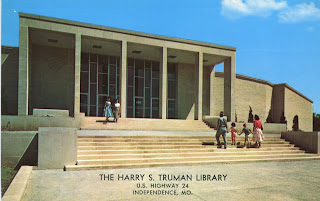"On Being a Historian: An Interview with James M. Banner, Jr."
Conducted by Donald A. Yerxa
Historically Speaking (September 2012)
Historian James Banner's new book Being a Historian: An Introduction to the Professional World of History (Cambridge University Press, 2012) is an insightful and often provocative overview of the current state of the discipline of history. Drawing on more than fifty years experience both within and outside academic walls, Banner argues that while there is much to celebrate, the discipline needs to acknowledge and confront a number of serious challenges. Banner, the author of many books and essays on history, education, and public affairs, is currently working on a book about revisionist history. Senior editor Donald A. Yerxa interviewed Banner in July 2012.
Donald A. Yerxa: For the benefit of our readers, would you briefly summarize your central argument in Being a Historian?
James M. Banner, Jr.: The basic one, from which the book descends, is that history is a discipline—a distinct domain of knowledge— pursued in many professions. That is, there's no "history profession," as we colloquially call it, as such. That argument's corollary is that academic history, while still the center of gravity of the discipline, does not embody all of historians' knowledge, institutions, or practices. Of course, we know this, but our terminology and the way we relate the history of the discipline haven't caught up with the facts—much to the cost of reputation, reward, self-respect, and, most importantly, the training of historians. I thus also argue that, while the preparation of historians has substantially improved in recent decades, it remains deficient. That argument, that we have farther to go in preparing historians, is like an organ point in a passage of music, the rumbling contention of the entire book. Finally, I argue that historians (like, I must say, sociologists and biologists, attorneys and engineers) must seek more guidance, not from the idols of the tribe—academic professors—or from within the conventional template of graduate student preparation—how principally to become an academic scholar-teacher—but from within themselves, from their particular dispositions, gratifications, aims, and gifts.
Yerxa: What prompted you to write it? And for whom is it written?
Banner: Part of the spur was purely personal as is—isn't it?—all writing. I wanted to try to draw together my reflections, frustrations, and concerns about the entire discipline of history formed over more than a half-century of being a historian. I wanted also to challenge my colleagues to go further in altering the way historians prepare young historians for their professional worlds. And there was a part of me that wished to do what I wish the senior historical organization in the U.S. and the largest and most influential body of historians in the world—the American Historical Association—would periodically do: assess the state of the discipline. And so the book is a kind of evaluation of the condition of the discipline today. But it's also a book with two very specific audiences in mind: first of all aspiring historians, for whom I want to provide a kind of honest, optimistic, yet disenthralled introduction to the discipline they're entering; and second, my more experienced colleagues who ought to be training historians to interact with the larger world as well as with scholars and students and who, I hope, are learning to reach out to that world themselves.
Yerxa: You argue with conviction that it is a mistake to confuse the discipline of history with the profession of history. Why is it such an important distinction to make?
Banner: Simply put, because of the facts. The academic profession is but one of the professions—although, surely, the central one still—in which historians practice their many crafts and apply their great variety of knowledge. Historians also practice history in law and medical schools, in government at all levels, as reporters, in museums and historical societies, and as schoolteachers. These historians, when employed as historians, are all professional historians acting professionally, taking part in the worldwide community of historical discourse and applying historical knowledge in some manner to some purpose. It’s the discipline that binds us, not our places of work, the kinds of work we pursue, the forms our work takes, or the audiences to which we direct that work. Those differ widely. The conventional terminology—“the” history profession—gives pride of place to those who coined the term and have long employed it: academic historians around whom, in the first century of the discipline’s emergence, the world of history gathered. After all, they were the people (mostly men) who created the departments, the standards, the training protocols, the products (mostly books), and the tenure system in which, until the 1960s, most historians were organized. But while historians must still be prepared by academic historians in research universities to master bodies of knowledge and to undertake and produce research scholarship, their employment has long escaped academic walls. In fact, there’s reason to believe that at least half of those now receiving history doctoral degrees, either by choice or necessity (we lack information about that critical matter), do not enter academic work. Consequently, in recent decades we’ve gotten used to distinguishing academic from public historians. That’s fine as far as it goes. But, as I also argue in the book, it’s a weak distinction. Increasingly, historians are hybrids—I’m one of them—who move back and forth between the classroom and other occupations, who write, film, and curate history while holding faculty positions and who teach while working in government or nonacademic institutions. An increasing number of historians are both academic and public historians. So why can’t we just term ourselves historians— colleagues all—and put aside the distinction, perhaps useful but increasingly outmoded, between public and academic historians? read on >>>































